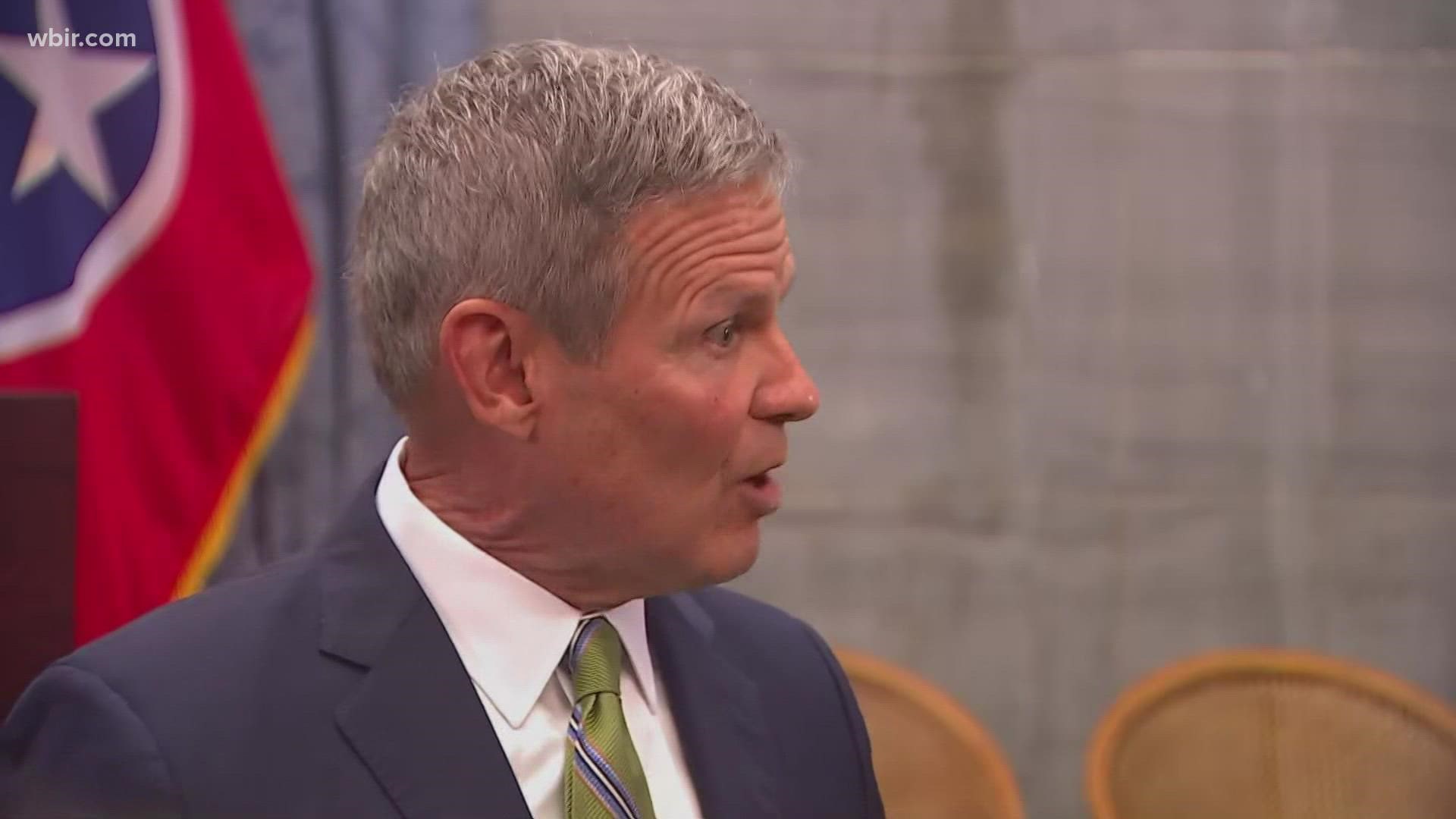NASHVILLE, Tenn. — Governor Bill Lee allowed a bill threatening felony penalties against unhoused people to become law without his signature on Thursday.
The bill, SB 1610, introduces a Class C misdemeanor punishable by a $50 fine and community service for camping along highways and under bridges. It also expands the Equal Access to Public Property Act of 2012 to make it a Class E felony for camping on all public property, including parks.
It also says camping can include putting up tents, tarps and temporary shelters "for living accommodation activities." It also says people could face punishments for sleeping outside of a car or preparing to sleep outside a car by laying down a sleeping bag.
The bill also specifies that someone who violates the law for the first time must get a warning citation, but they could be given felony punishments for subsequent violations.
"It's important that we utilize state property and parks and city property for the purposes intended, and that was the intent behind this bill," Governor Lee said. "I am concerned about the unintended consequences. I will let the bill go into law, and we will follow up with the sponsors to understand the implications, and to understand if there are adjustments needed going forward."
The bill was criticized by advocates across the state who said the law will further add to the challenges people face if they do not have a home.
Hundreds of people are homeless in the Knoxville area, and a study found that around 60% of unhoused people in the county had issues affording rent or mortgages. It was not clear how they'd pay fines under the legislation if they already lack money for housing.
The study also showed that 31% of the homeless population could not find affordable housing for themselves or their families, 16% were evicted, and 10% lost their jobs.
Governor Lee said there were concerns about how the law could impact prison populations and raise operational issues in jails across the state. He said officials would watch prison rates to determine the impact of the bill.
"Inconsistent enforcement is something we should be looking at. That's something we will watch as well," Lee said.
During a media availability event, reporters also asked the governor about issues religious nonprofits raised about the bill. Those organizations aid the law could cause prevent unhoused people to be unable to get into housing due to having a felony on their records.
"I've certainly worked with a number of those nonprofits, I think the thing that we all recognize is that the government really isn't the answer to the greatest challenges that we have, and homelessness and the poor are certainly a tremendous challenge," Lee said. "Government has a responsibility to partner with these nonprofits, with churches, with advocacy groups for the homeless, to find a way forward. That's what I want to see happen in our state."
The law is set to go into effect on July 1.

